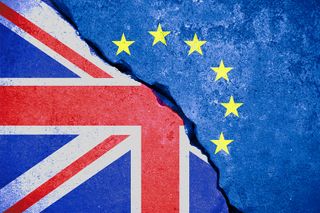Article 50: UK tech sector reacts
Tech industry focuses on Brexit negotiations following Article 50

The government today triggered Article 50, meaning the UK will leave the European Union by 29 March 2019.
Prime minister Theresa May's letter notifying the European Council of the UK's intention to leave triggers an exit negotiation process that will conclude with the UK's departure from the EU, which it has been a member of since 1973.
Julian David, CEO of tech industry trade body techUK, said: "The European Union and the UK government now have a responsibility to work together to secure a deal that supports the jobs and livelihoods of citizens across the UK and the EU."
Pointing to the digital sector's fast growth it now accounts for 16% of GVA and 24% of UK exports, as well as three million jobs David added that the negotiations require a "smooth conclusion" for the industry to thrive.
"A chaotic Brexit that results in the UK falling back on World Trade Organisation rules will benefit no one," he said.
Following the Leave vote last June, a TechUK survey of members found that 70% were optimistic about the UK's future after Brexit, down from 93% last March.
Much doubt remains over the UK tech industry's future prospects outside the EU. With years of negotiations ahead, May has ruled out remaining in the single market and appears to be pushing for a hard Brexit.
Get the ITPro. daily newsletter
Receive our latest news, industry updates, featured resources and more. Sign up today to receive our FREE report on AI cyber crime & security - newly updated for 2024.
Ending freedom of movement means it will be harder for UK firms to access foreign talent from the EU and a lack of access to the single market could harm exports if tariffs are imposed on trade.
"Whether you are selling goods online or providing a service made up of technology components that reside in different countries, the cost overhead will only increase if the UK sits outside of a EU Digital Single Market," said Ross Mason, founder of MuleSoft, an application integration platform.
Brexit will produce other complications. The EU's General Data Protection Regulation (GDPR) will come into force in the UK in May 2018 but Brexit will be just a year later, and the UK's withdrawal from the EU will mean this law no longer applies. To continue trading with the EU, the UK must draw up similar legislation once it has left, but there is doubt over what that future data protection policy will look like. The UK's data watchdog, the Information Commissioner's Office, has simply said: "The UK will continue to need clear and effective data protection laws, whether or not the country remains part of the EU."
NetApp's chief privacy officer, Sheila FitzPatrick, said UK businesses must prepare for GDPR regardless and improve their data protection policies in order to trade outside the UK post-Brexit.
"UK companies should not wait for an official UK government framework for data protection," she said. "Instead, businesses need to set their own approach. This means auditing the most stringent compliancy requirements in the countries where they do business with, and then working to meet those regulations."
Startups, meanwhile, are already feeling the affects of Brexit, according to a Tech London Advocates study last week that found 12% of London entrepreneurs have lost potential funding as a result of uncertainty surrounding the leave vote.
Chris McCullough, CEO of London scale-up RotaGeek, a staff scheduling tool, called for UK negotiators to focus on Britain remaining open to business and talent.
But he added: "Personally, Brexit won't change how we do business - especially not in terms of hiring. Hiring the best people, regardless of where they come from, is one of the most important building-blocks for innovation and success in the tech-industry.
"Great things happen in difficult environments. People fear uncertainty but there is a great opportunity in it - now is a time to become more focused."
On the negotiations, TechUK's David said: "Both sides must remember that a good deal for tech is a good deal for everyone. A new relationship must be forged that not only works for today's economy, but for tomorrow's digitally-enabled world."
Most Popular





